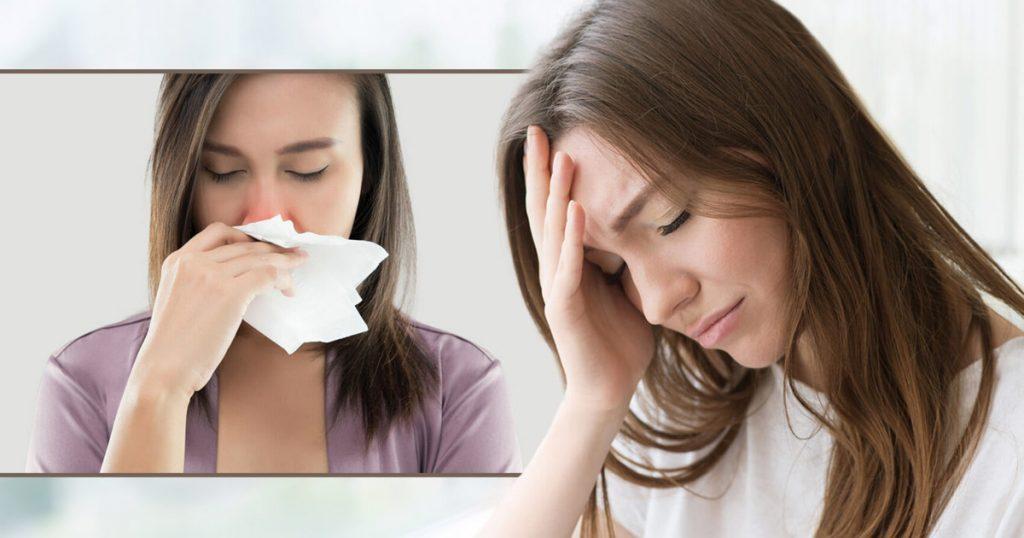Have you ever felt suddenly exhausted and just couldn’t seem to focus? This isn’t the typical tiredness you get from staying up late or having a busy day. Fatigue is a deeper kind of exhaustion, where you feel constantly low on energy, even after resting. Research shows that this kind of fatigue can really affect how you function day-to-day, making it different from the usual tiredness most people feel now and then.
Fatigue can be caused by many things, like stress, not eating well, chronic health issues, or not getting enough sleep. One surprising cause is allergies. Allergy-induced fatigue is a particular issue that needs attention because it can really impact those who experience it.
Can Allergies Make You Tired?
Absolutely, allergies can make you feel really tired. When you come across allergens like pollen, dust, or pet hair, your body springs into action to defend itself. This defense mechanism can leave you feeling exhausted and sluggish. Here’s why this happens and what you might notice:
Why Allergies Cause Fatigue
- Overactive Immune System: Your body treats allergens as harmful invaders and releases chemicals to fight them. This constant alertness wears you down and saps your energy.
- Histamine Effects: When allergens hit, your body releases histamines, which can lead to inflammation and make you feel sleepy.
- Sleep Troubles: Allergy symptoms like a blocked nose or itchy eyes can make it difficult to get a good night’s sleep. This lack of quality rest leaves you feeling tired the next day.
- Medication Drowsiness: Some allergy medicines can make you drowsy, adding to your tiredness.
Symptoms of Allergy Fatigue
- Persistent Tiredness: Feeling constantly worn out, no matter how much you rest.
- Mental Fog: Struggling with focus and clear thinking.
- Sleep Problems: Difficulty falling asleep or staying asleep because of allergy issues.
- Low Energy: Feeling depleted and lacking the energy to handle daily activities.
Knowing these causes and symptoms can help you better manage your fatigue and find ways to feel more energized, even with allergies.
Implications of Allergy-Induced Fatigue
Feeling constantly tired due to allergies can really affect your daily life. It can make it hard to focus at work or school, leading to mistakes and less productivity. This ongoing fatigue can also mess with your mood, making you feel grouchy or stressed. You might find yourself avoiding social activities or hobbies because you’re just too worn out, which can impact your relationships and overall happiness.
How to Combat Allergy Fatigue
- Avoid Your Triggers: Try to identify what causes your allergies. Once you know, you can avoid them more easily, like staying indoors during pollen-heavy days or using air purifiers to cut down on dust or pet hair at home.
- Get Better Sleep: Make your bedroom allergy-friendly. Use covers that block allergens on pillows and mattresses, wash your bedding often in hot water, and keep windows shut to stop outdoor allergens from coming inside.
- Choose the Right Medications: Use non-drowsy allergy medications to manage symptoms without adding to your tiredness. Talk to your doctor to find the right option for you.
- Consider Allergy Shots: Also known as immunotherapy, these shots or tablets can help your body become less sensitive to allergens over time, reducing symptoms and fatigue.
- Stay Hydrated and Eat Healthy: Drinking lots of water and eating a balanced diet can help your body deal with allergies better. Foods with omega-3s, like those found in fish, can lower inflammation.
- Exercise Regularly: Regular exercise can boost your energy, improve your mood, and help you sleep better. Just try to work out indoors or when pollen counts are low if pollen bothers you.
- Reduce Stress: Stress can make you feel even more tired, so try relaxation techniques like yoga, meditation, or deep breathing to help manage it.
You can feel more invigorated and have a better quality of life by realizing how allergy-induced fatigue affects you and managing it.
What to Do If Your Allergy Won’t Go Away
If your allergy symptoms just keep hanging around, it’s important to find out exactly what’s causing them. Getting the right diagnosis is key. An allergist can help by doing tests to figure out which specific things are triggering your allergies. Once you know what’s causing the problem, you can focus on the right treatments and ways to avoid these triggers. This not only helps in reducing allergy symptoms but also eases the tiredness that comes with them, helping you feel more energetic.
Persistent Allergies
Dealing with ongoing allergies can be really tough and can affect how you feel both physically and mentally. But understanding what’s causing them can make a big difference. With a proper diagnosis, you can follow a treatment plan that might include specific medicines, changes in your daily habits, or even allergy shots. You can greatly enhance your daily life by treating allergies at their root. Reducing symptoms and managing the tiredness can help you get back your energy and enjoy your favorite activities without feeling constantly worn out by allergies.
